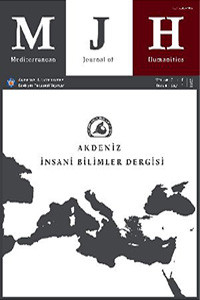Abstract
This study starts with a brief description of both what constructivism is, and its place in foreign language teaching literature. This literature review includes not only the theoretical dimension of the concept, but also over those practical studies with a constructivist focus. This study aims to find out how this theory is put into practice in Turkish EFL classes in primary schools. In order to obtain a robust understanding of the current situation of constructivism in primary EFL classes in Turkey, the researcher developed a survey for EFL teachers working in primary schools in the province of Konya. The data collection tool was designed to uncover issues regarding; (1) the implementation of constructivist learning principles in lessons (2) practical problems that are likely to emerge in the classroom (3) how constructivist principles are put into practice in the course books provided by the Ministry of Education. The Cronbach’s Alpha coefficient of the survey, analysed by using SPSS 15.0, was .752. The results revealed what English teachers, as significant stakeholders in primary school education, thought about the current situation and the practice of constructivism in primary school EFL classes. The independent samples t-test and analysis of variance results showed that there were no statistically meaningful differences between sexes except for one item in the questionnaire; similarly, no statistically significant differences were found between teachers with a BA and those with MA degrees, except for one item. Moreover, analysis has not revealed any significant differences between ELT and non-ELT graduates. The study ends with a discussion of the results of the survey
References
- Akar, H., & Yıldırım, A. (2004). Oluşturmacı Öğretim Etkinliklerinin Sınıf Yönetimi Dersi’nde Kullanıl- ması: Bir Eylem Araştırması. [Use of Constructivist Learning Activities in Classroom Management Course: An Action Research] Sabancı Üniversitesi, İyi Örnekler Konferansı. http://www.erg.saban- ciuniv.edu/iok2004/bildiriler /Ali%20Yildirim.doc (Retrieved: 10.12.2009).
- Applefield, J., Huber, R., & Moallem, M. (2001). Constructivism in theory and practice: Toward a better understanding. High School Journal, 84, 35-53.
- Ayas, C. (2006). An Examination of the Relationship between the Integration of Technology into Social Studies and Constructivist Pedagogies, The Turkish Online Journal of Educational Technology(TOJET), 5 (1).
- Beck, C., & Kosnik, C. (2006). Innovations in Teacher Education: A Social Constructivist Approach. Albany, New York: State University of New York Press.
- Brooks, J. G., & Brooks, M. J. (1999). In search of understanding: The case for constructivist classrooms. New York: Association for Supervision and Curriculum Development.
- Can, T. (2006). Oluşturmacılık ve Yabancı Dil Dersleri, Eğitimde Çağdaş Yönelimler-3: Yapılandırma- cılık ve Eğitime Yansımaları. Conference Proceedings, 29th. April, 2006, 282-288.
- Council of Europe (2000). European language portfolio (ELP): Principles and guidelines. Strasbourg: Council of Europe Education Committee.
- Council of Europe (2001). Common European framework of reference for languages: Learning, teaching, assessment. Cambridge: Cambridge University Press
Details
| Primary Language | Turkish |
|---|---|
| Subjects | Language Studies (Other), Educational Sociology |
| Journal Section | Araştırma Makaleleri |
| Authors | |
| Publication Date | December 30, 2011 |
| Published in Issue | Year 2011 Volume: 1 Issue: 2 |

